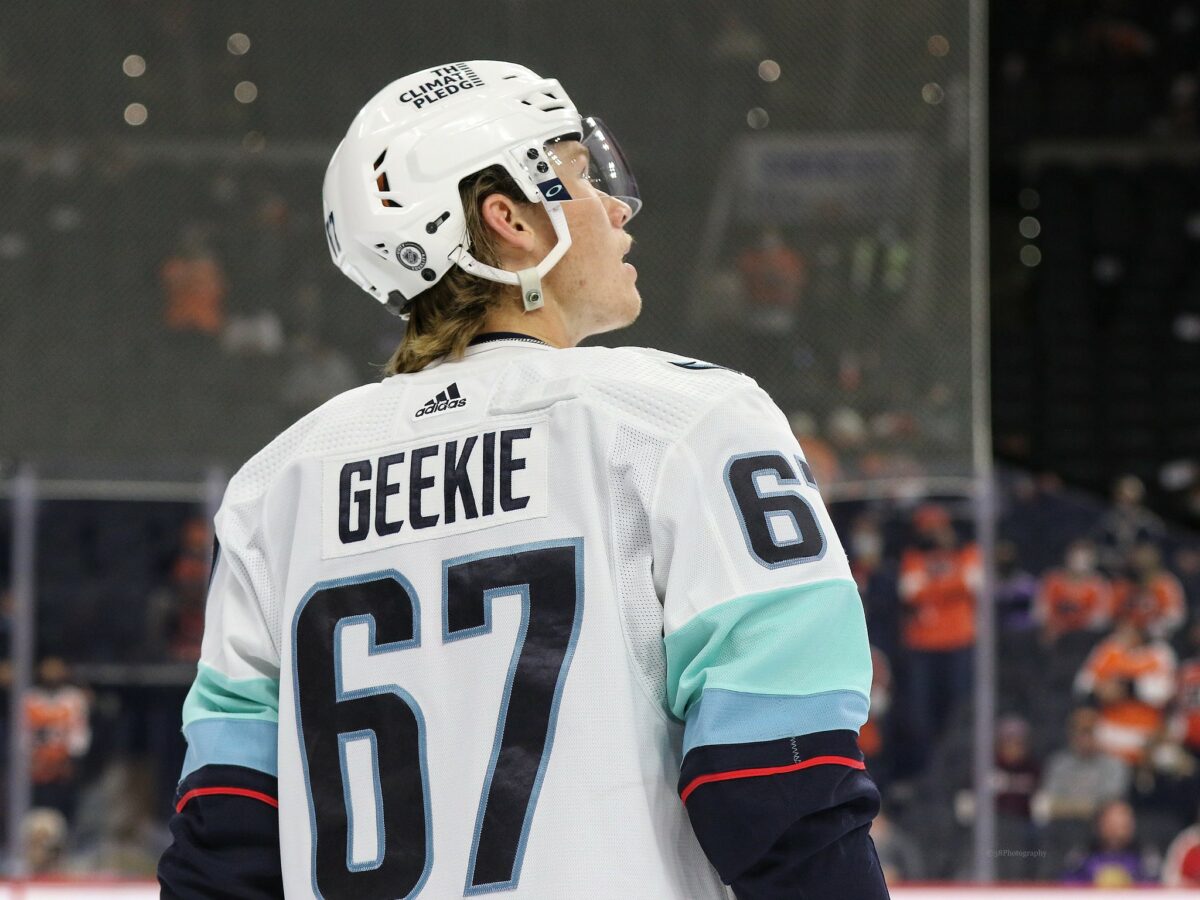On Sunday afternoon, the Seattle Kraken fell to the New York Rangers 3-2. The Kraken, who arguably outplayed the Rangers throughout the game, gave up a goal in the final minute and fell to 14-26-4 on the season. Here are three takeaways from another frustrating loss by the Kraken.
Lots of Shots, Not a Lot of High-Danger Chances
The Kraken outshot the Rangers 33-21 at even strength throughout the game. The problem is that Seattle was not able to generate high-danger chances and made life easy for Rangers goaltender Igor Shesterkin. In 46:22 of even-strength ice, both teams managed only eight high-danger scoring chances despite the large discrepancy of shots on goals and overall chances leaning Seattle’s way.
The same issue occurred on the Kraken’s power play as, despite having five opportunities, they only generated one high-danger chance while also conceding one. Just like at five on five, they were able to generate shots, notching six in total, but were unable to create chances that tested Shesterkin.
Generating high-danger chances, whether on the power play or at even strength, has been a problem all season for the Kraken. They rank 26th in the league for even strength and 24th at any strength in the league when it comes to generating high-danger chances. Getting shots on goal is important, but creating these high-danger chances is key if the team wants to have success the rest of the season.
Not a Great Night in the Faceoff Dot
Both the Kraken and Rangers are ranked in the bottom 10 when it comes to faceoff win percentage. Coming into the game, Seattle ranked 23rd with a 48.2% win rate, while the Rangers ranked 24th with a 47.9% win rate. Thanks to the Rangers’ domination in the faceoff dot throughout the game, the two teams are now tied with a 48.1% win rate.
The Rangers won 56% of faceoffs versus the Kraken, winning 32 of 57. The Kraken were 50% or below at even strength, on the power play, and shorthanded. Losing faceoffs directly led to their loss, and K’Andre Miller’s goal with 33 seconds left came off a clean faceoff loss by Alex Wennberg. Overall, only three players had a win rate higher than 50%, but none of those players took more than five faceoffs during the game. This is an area Seattle needs to improve in this offseason to avoid losses like this one.
Kraken Need to Play Geekie More
Despite playing under 10 minutes, Morgan Geekie was a bright spot in this game for the Kraken. He had five shots on goal, created two individual high-danger scoring chances and won three of his four faceoffs. Coach Dave Hakstol needs to find a way to get him more engaged in the game, especially at five-on-five. If not, it could stunt his development and will prevent him from becoming the effective second-line center he is projected to be.

The other problem with Geekie’s deployment during the game was inconsistent linemates. Against the Rangers, he played at least one shift with seven different combinations. His most consistent line was with Riley Shehan and Karson Kuhlman, but they only played a total of 1:32 five-on-five. Despite not having consistent linemates, he was one of the most dangerous Kraken players on the ice. This was not the only reason the Kraken lost tonight, but they could have used more of him through the game.
Related: 3 Kraken Who Should be Untouchable at the 2022 Trade Deadline
Geekie being under-utilized has been a common issue all season. This was the sixth time he has played under 10 minutes total, and the 16th time he has played under 10 minutes five-on-five. He may not be as established as other players on the team, but when he is having a good game as he did versus the Rangers, the Kraken need to find a way to get him more ice time.
Tough Back to Back to Start February
The Kraken enter February with a tough back-to-back in Boston and on Long Island. If they want to walk away with four points, they need to play better than they did against the Rangers. Playing Geekie more, generating high-danger chances and improving at faceoffs are all lessons the Kraken can take from this game to help them have some success before the All-Star break.